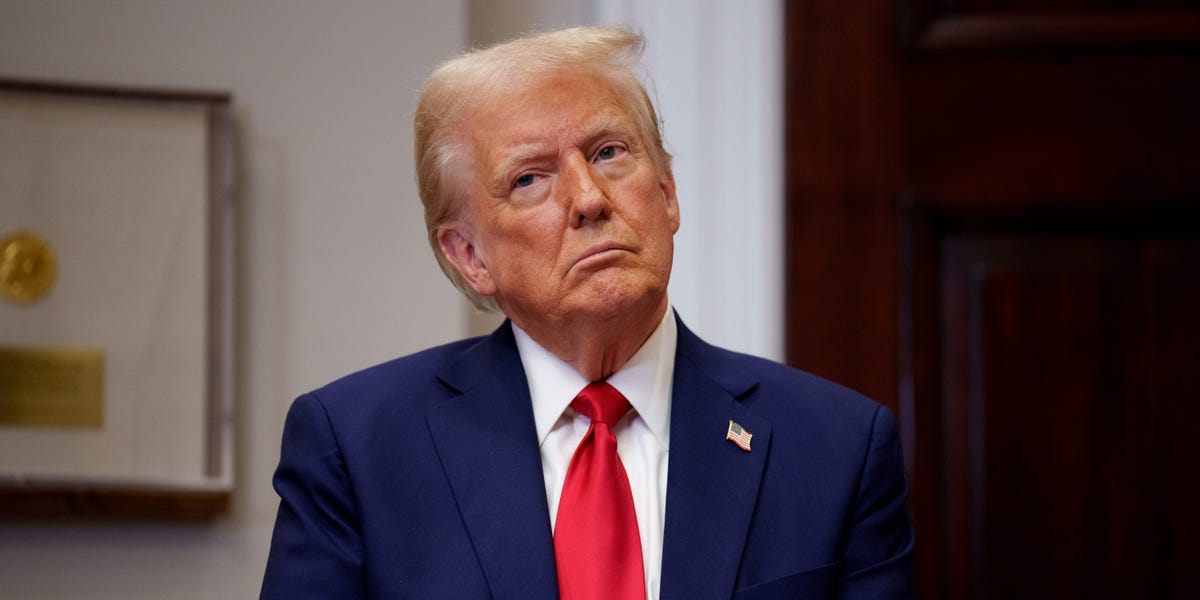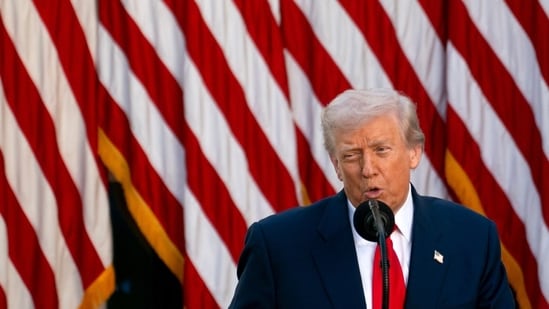- The Trump administration will keep Biden-era antitrust guidelines in place.
- The development could upend Wall Street’s prediction of an M&A boom under Trump.
- A “supercycle” of mergers was anticipated to drive stocks higher.
A key argument in the bull thesis for the stock market under President Donald Trump has been weakened this week.
On Tuesday, the Trump administration signaled that it would stick with Biden-era merger review guidelines, a letdown for investors who had been anticipating looser antitrust enforcement.
Though some on Wall Street have wagered that an improved mergers and acquisition environment would boost stocks, that view has become murkier.
The decision keeps in place review rules introduced by the former administration in 2023, curbing monopoly behavior in the market. Private companies have argued against the tight guidelines, which have been behind failed mergers in recent years.
Federal Trade Commission Chairman Andrew Ferguson said changing the rulebook with each new president fosters an unstable environment for businesses. In a memo sent to staff, he outlined that the White House has a history of adopting antitrust guidelines between administrations.
“No business can plan for the future on the basis of guidelines they know are one election away from rescission, and no court will rely on guidance that is so obviously partisan,” he wrote.
The existing framework that the FTC and the Department of Justice use to establish the legality of a proposed merger — which includes more than a dozen factors considered by regulators —will remain in place.
That’s not what Wall Street has been waiting to hear.
After President Donald Trump’s election win last November, the S&P 500 roared higher on a mix of policy optimism, including the idea that M&A activity would pick up significantly through 2025.
By the end of last year, top banks, including Goldman Sachs, outlined investing strategies to take advantage of this “supercycle.” At that time, it was estimated that M&A deals would increase by 25% in 2025, while a strong economy, continued earnings growth, and lower interest rates were all expected to boost stocks.
But confidence in those outlooks has also weakened.
Inflation fears have risen during Trump’s first month in office, as the president has both threatened and delayed a trade war on some of Washington’s closest allies. The uncertainty around protectionist trade policy has slashed hope for multiple rate cuts this year, and sparked concern of a significant hit to earnings of S&P 500 companies.
Before his inauguration, stocks were buoyed by hope that Trump’s tariff plans would take a backseat to policies that promoted growth, such as deregulation and tax cuts. So far however, this “Trump bump” rally isn’t going as planned, leaving US indexes lagging behind international peers.


